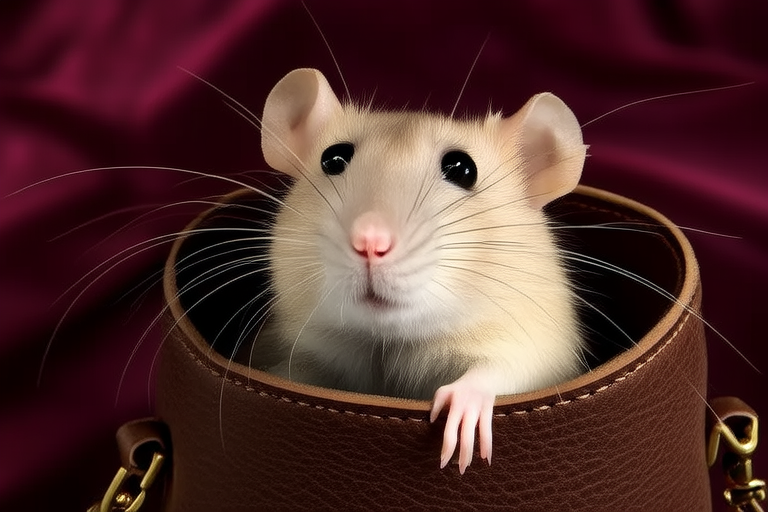From Pouch to Palace: A Journey into the World of Fancy Rats
Fancy rats, often misunderstood, are intelligent and social creatures that make wonderful pets. Contrary to common perceptions, these rodents are not merely pests but are highly intelligent beings capable of forming strong bonds with their human companions. This article embarks on a journey through the world of fancy rats, exploring their history, care, social dynamics, and the unique relationship they share with humans.
The Evolution of Fancy Rats
The journey of fancy rats from laboratory animals to cherished companions is a fascinating one. Historically, rats have been used extensively in scientific research, contributing significantly to medical advancements. However, over time, people began to recognize the potential of rats as loving and interactive pets. The term ‘fancy’ refers to selectively bred rats with desirable traits like size, color, and temperament. These rats have been bred for centuries, leading to a wide variety of breeds, each with its own unique characteristics.
Rat Care: Ensuring a Happy and Healthy Life
Proper care is essential for keeping your fancy rat healthy and happy. Their diet should primarily consist of commercial rat pellets, supplemented with fresh fruits, vegetables, and occasional treats. It’s important to avoid feeding them sugary or fatty foods, as these can lead to health issues. Housing is another critical aspect; a spacious cage with multiple levels and hiding spots provides ample space for exploration and play. Regular cleaning of the cage is necessary to maintain hygiene and prevent illness.
Health maintenance involves regular check-ups with a veterinarian familiar with exotic pets. Signs of poor health include lethargy, weight loss, or changes in eating habits. Early detection and treatment of any issues can significantly improve a rat’s quality of life.
Social Dynamics: The Colony Within
Fancy rats are highly social animals that thrive in groups. In the wild, they live in colonies, and this instinct carries over into captivity. They communicate through a variety of vocalizations, body language, and scent marking. Establishing a group of compatible rats can create a harmonious environment where they can engage in mutual grooming, play, and explore together. Introducing new members to an existing group requires careful observation to ensure compatibility.
Understanding the social structure of a rat colony can help owners provide an enriching environment. Providing toys, tunnels, and platforms allows rats to exhibit natural behaviors and keeps them mentally stimulated. This social interaction is crucial for their well-being, promoting a sense of security and belonging.
Mental Stimulation: Training and Games
Training techniques and interactive games can greatly enhance the mental stimulation of fancy rats. Simple commands like ‘come’ or ‘sit’ can be taught using positive reinforcement methods such as clicker training. This not only strengthens the bond between owner and pet but also provides mental exercise. Interactive toys, such as puzzle feeders, encourage problem-solving skills and keep the rats engaged.
Games that involve hiding treats or creating obstacle courses stimulate curiosity and provide physical activity. These activities mimic natural foraging behaviors, keeping the rats active and entertained. Owners can also participate in agility courses designed specifically for small pets, offering a fun and rewarding experience for both the rats and their human companions.
The Unique Bond Between Humans and Rats
The relationship between humans and fancy rats is a testament to the power of compassion and understanding. Once considered mere scientific tools, these animals have found a place in many homes as beloved family members. The journey from pouch to palace is one of acceptance and appreciation for their unique qualities.
This bond is built on trust, respect, and shared experiences. Rats respond positively to gentle handling and consistent routines, forming deep attachments to their caregivers. Celebrating their transition from scientific tools to cherished companions highlights the importance of recognizing the value of all living beings. By fostering this connection, we enrich our lives while ensuring the well-being of these remarkable creatures.
In conclusion, fancy rats offer a unique and rewarding companionship. From their rich history to their intricate social structures, there is much to learn about these intelligent and social animals. Proper care, attention to their needs, and a commitment to their well-being will ensure a long and joyful partnership. Let us continue to celebrate the journey of fancy rats from pouch to palace, embracing their role as cherished family members.
